A successful egg retrieval requires IVF cycle monitoring
Once a patient has taken fertility drugs to stimulate the production of multiple eggs, the team at our Virginia fertility center needs to closely monitor her to ensure that the egg retrieval stays on schedule. Because every woman’s body is different, individualized IVF cycle monitoring helps us gauge each patient’s response to the medication, ensure that multiple eggs are developing and pinpoint the precise time when her eggs will be ready for retrieval.
How IVF cycle monitoring works
Patients at our Virginia fertility center take medications for ovarian stimulation for 10 to 14 days. This medication typically begins working within the first few days, so our team will schedule the first IVF cycle monitoring appointment four or five days after the first dose. These appointments assess a number of factors.
- Estradiol (E2) levels. Estradiol is a hormone produced by a woman’s eggs as they mature within her follicles. Generally, higher estradiol numbers indicate that a patient is producing more eggs. Our team assesses estradiol levels using a blood test.
- Follicle number. To ensure that the medication has sufficiently stimulated the patient’s ovaries, our team counts the number of developing follicles within a patient’s ovaries using a transvaginal ultrasound.
- Follicle size. Maturing eggs within the follicles grow about 3mm every two days. Measuring their current size during a transvaginal ultrasound, we can estimate how long it will take them to reach the 17-20mm size that they should be at the time of retrieval.
- Uterine lining quality. During ovulation, the patient’s (or gestational carrier’s) uterus develops a lining that can support a pregnancy. The quality of this lining, determined by its thickness and pattern, can affect pregnancy success. During a transvaginal ultrasound, our providers monitor the uterine lining to see whether it is developing properly.
Precise timing is essential in an IVF cycle. For the greatest chance of success, our team must ensure that the patient’s eggs are mature at the time of egg retrieval, ovulation does not occur before the egg retrieval and the intended carrier’s uterus is ready for embryo transfer.
We will schedule follow-up IVF cycle monitoring visits every few days until the retrieval. This helps us time the administration of fertility drugs to prevent premature ovulation and ovarian hyperstimulation syndrome, as well as promote a nurturing environment within the uterus. Patients can expect to attend four to five monitoring visits during the course of an IVF cycle.
Learn more about fertility treatment
Our Virginia fertility center team is proud to offer state-of-the-art fertility care. To learn more about the role that IVF cycle monitoring plays in a fertility treatment plan, or to move forward with your own fertility journey, contact our office.

